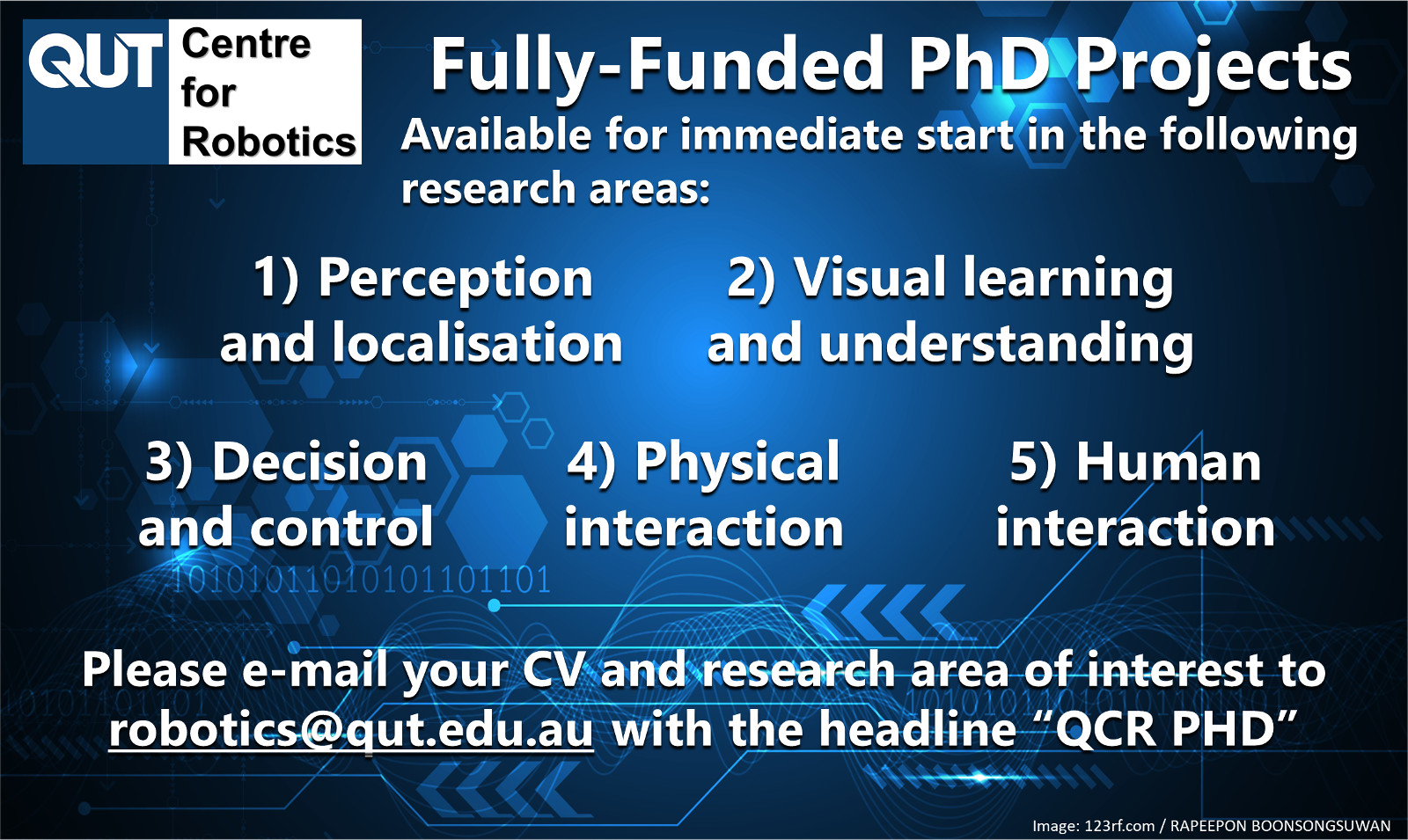PhD Scholarships
first advertised on 6 March 2020
The QUT Centre for Robotics located in Brisbane, Australia, has openings for fully-funded PhDs for immediate start in the following research areas:
1) Visual learning and understanding
This is the program I am leading in the centre if you are interested in working with me on semantic SLAM, scene understanding, reinforcement learning from semantic maps, reliable deep learning or uncertainty techniques for deep learning, please contact me directly.
This program investigates the fundamental problem of how a robot can learn to reliably interpret its environment, and build an internal representation of its surroundings in order to decide on its actions. The program addresses research questions such as how machine learning for visual perception can be made safe, trustworthy, and reliable; how robots can understand and represent the geometry, semantics, and functionality of their surroundings and the task-relevant objects therein; and how robots can use this internal representation and learn to decide or plan their next actions in order to accomplish a useful task in a safe way.
2) Perception and localisation
This program addresses the fundamental problem of how a robot or autonomous vehicle uses perception to create maps and calculate and track its location in the world. Research questions include addressing how the appearance of a place changes in relation as a function of time, season, weather, viewpoint and environment type; how understanding context and semantics can enhance performance; how lifelong reliability can be achieved as the world continually changes; the relationship to neurological structures and behavioural mechanisms used in animal and human navigation; and how new perception technologies can be applied to this problem.
3) Decision and control
This program investigates how to reliably make autonomous decisions and control for robots in the presence of uncertainty through the advancement of model-based filtering, estimation, detection, decision and planning techniques for robotic systems. Research questions include how to design robotic systems capable of achieving specified performance outcomes in the presence of uncertainty, how to detect anomalous system conditions in weak measurement environments, and how to characterise and managed network systems.
4) Physical interaction
This program is concerned with how a robot interacts with the physical world and requires consideration of all three robotic capabilities. In tasks such as grasping an object, turning a door handle, or applying a grinding tool to a workpiece the robot and the object exert forces on each other. Research questions include how to control these interaction forces so as to achieve the desired motion; how to handle noisy sensor data; and how to transition from vision-mediated control to force-mediated.
5) Human interaction
This program is concerned with how robots can effectively interact socially with humans, which will be critical to their wider adoption in homes, workplaces and healthcare facilities. Research questions include how to program robots to recognise, understand and respond to human behaviours; how humans will interact, perceive and trust robots; how humans will use robots to achieve collaborative goals; how robots will learn social norms, roles and scripts over time; how robots can successfully integrate into society; and do robots need theory of mind, cognition and/or emotional intelligence to be effective with humans.
To apply
Please e-mail your CV and research area of interest to robotics@qut.edu.au with the subject line “QCR PHD”.
